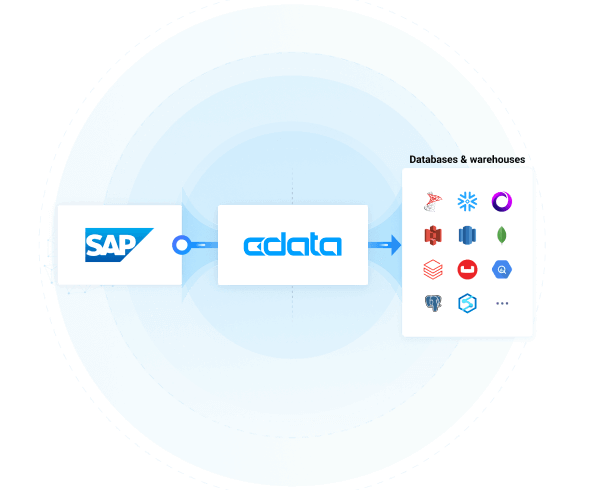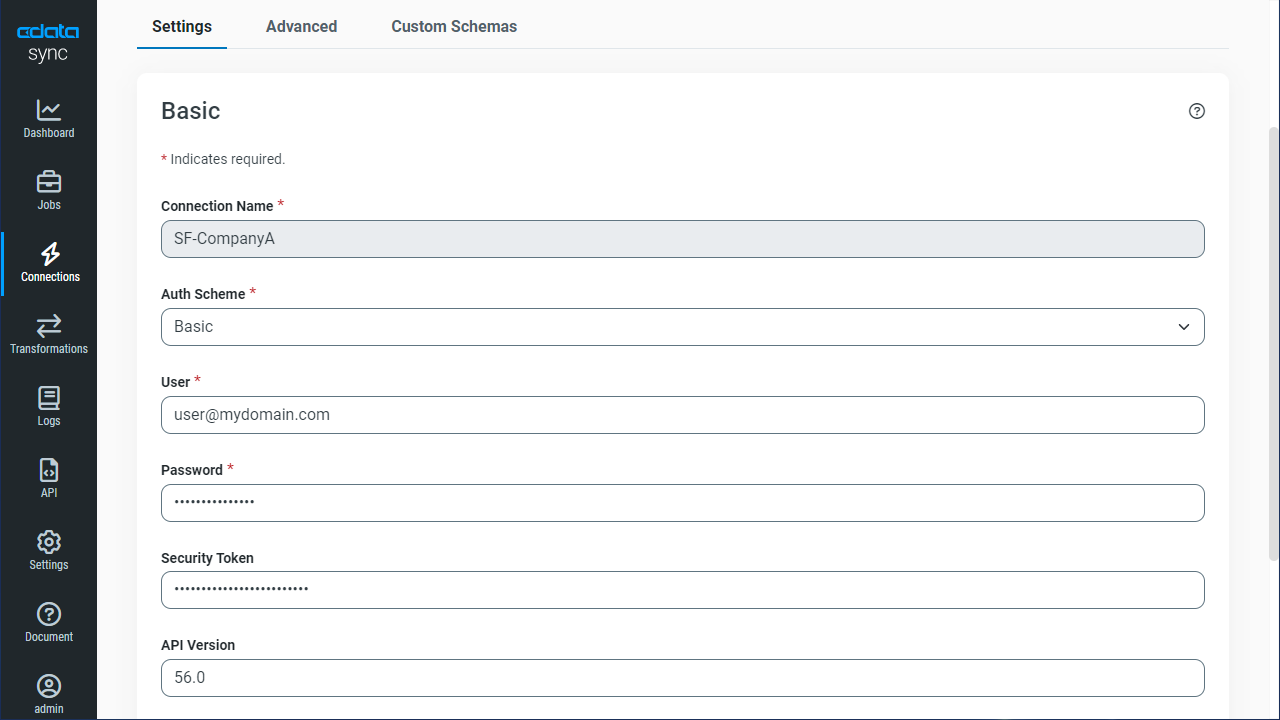Discover how a bimodal integration strategy can address the major data management challenges facing your organization today.
Get the Report →Replicate Multiple Redshift Accounts
Replicate multiple Redshift accounts to one or many databases.
CData Sync is a stand-alone application that provides solutions for a variety of replication scenarios such as replicating sandbox and production instances into your database. CData Sync includes a web-based interface that makes it easy to manage multiple Redshift connections. In this article we show how to use the web app to replicate multiple Redshift accounts to a single database.
Configure the Replication Destination
Using CData Sync, you can replicate Redshift data to any number of databases, both cloud-based and on-premises. To add a replication destination, navigate to the Connections tab.
- Click Add Connection.
- Select a destination and enter the necessary connection properties. In this article, we use SQLite.
- Enter the necessary connection properties. To replicate Redshift to a SQLite database, enter a file path in the Data Source box.
- Click Test Connection to ensure that the connection is configured properly.
![Configure a Destination connection (SQLite is shown).]()
- Click Save Changes.
Configure Redshift Connections
You can configure connections to Redshift from the Connections tab. To add a connection to one of your Redshift accounts, navigate to the Connections tab. For each Redshift account you wish to replicate, do the following:
- Click Add Connection.
- Select a source (Redshift).
- Configure the connection properties.
To connect to Redshift, set the following:
- Server: Set this to the host name or IP address of the cluster hosting the Database you want to connect to.
- Port: Set this to the port of the cluster.
- Database: Set this to the name of the database. Or, leave this blank to use the default database of the authenticated user.
- User: Set this to the username you want to use to authenticate to the Server.
- Password: Set this to the password you want to use to authenticate to the Server.
You can obtain the Server and Port values in the AWS Management Console:
- Open the Amazon Redshift console (http://console.aws.amazon.com/redshift).
- On the Clusters page, click the name of the cluster.
- On the Configuration tab for the cluster, copy the cluster URL from the connection strings displayed.
![Configure a Source connection (Salesforce is shown).]()
- Click Connect to ensure that the connection is configured properly.
- Click Save Changes.
Configure Queries for Each Redshift Instance
CData Sync enables you to control replication with a point-and-click interface and with SQL queries. To configure a replication, navigate to the Jobs tab and click Add Job. Select the Source and Destination for your replication.
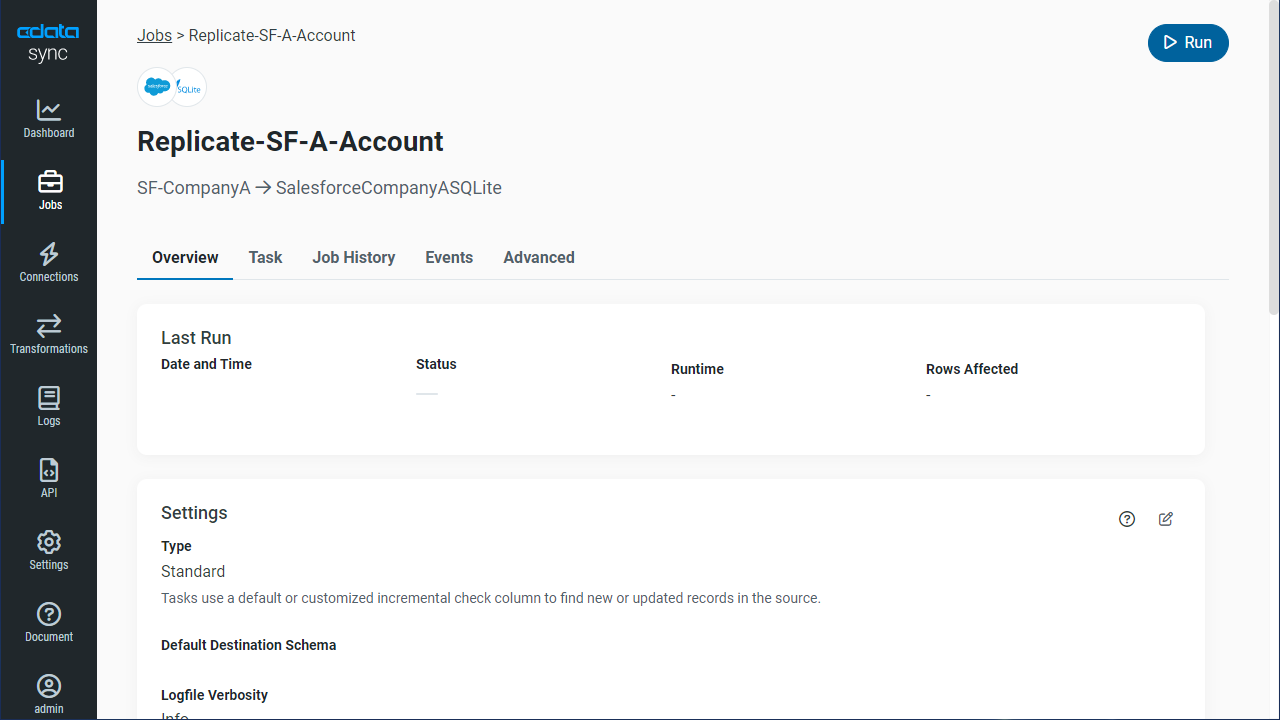
Replicate Entire Tables
To replicate an entire table, click Add Tables in the Tables section, choose the table(s) you wish to replicate, and click Add Selected Tables.
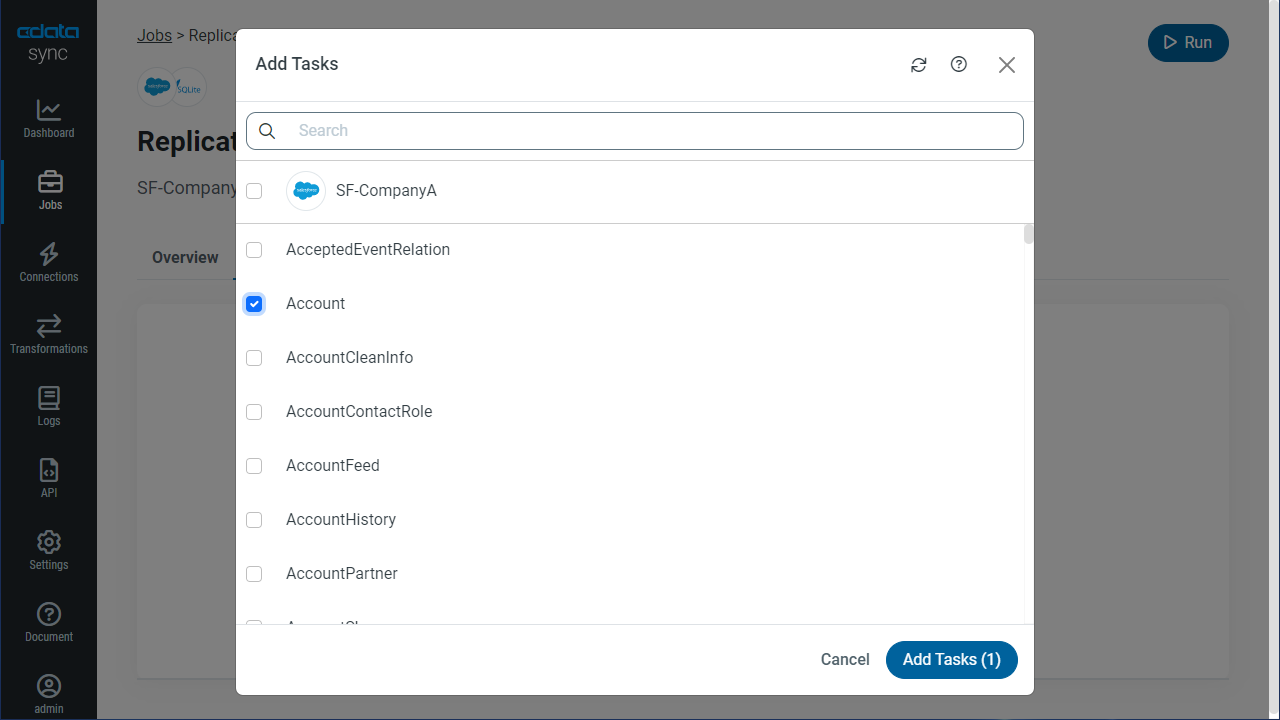
Customize Your Replication
You can use a SQL query to customize your replication. The REPLICATE statement is a high-level command that caches and maintains a table in your database. You can define any SELECT query supported by the Redshift API. To customize your replication, click Add Custom Query in the Tables section and define the Query Statement.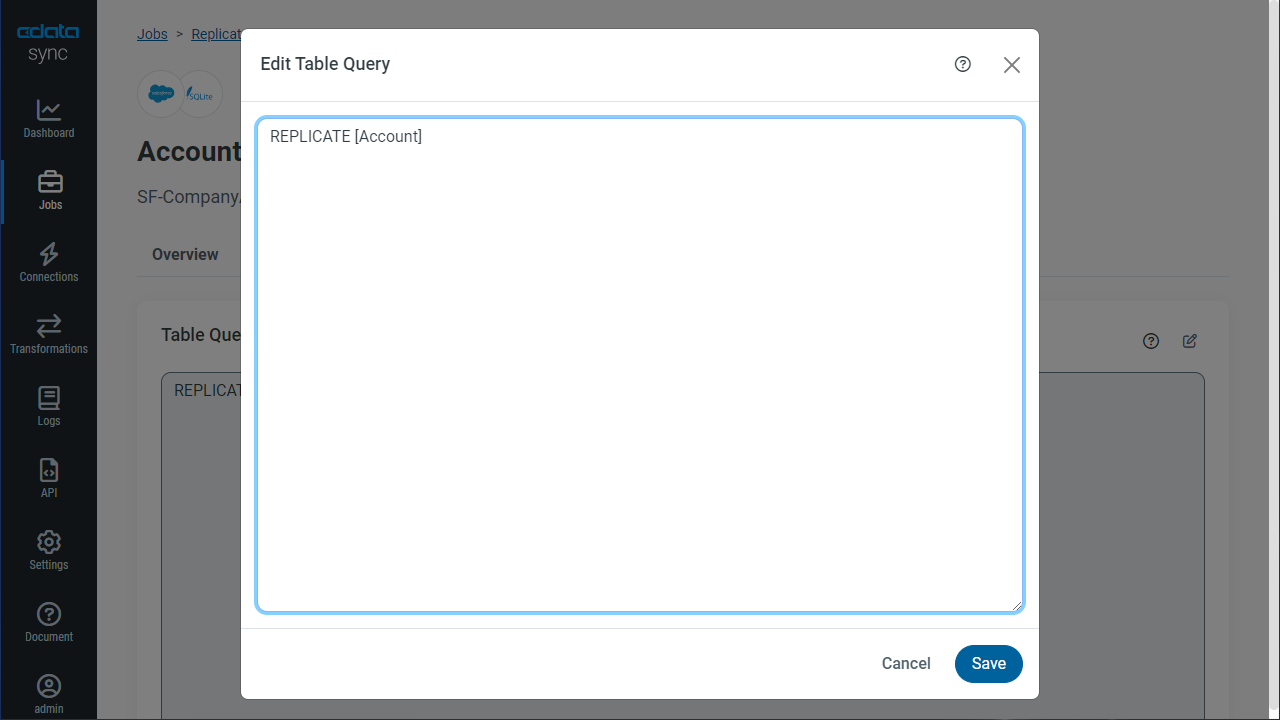
The statement below caches and incrementally updates a table of Redshift data:
REPLICATE Orders;
You can specify a file containing the replication queries you want to use to update a particular database. Separate replication statements with semicolons. The following options are useful if you are replicating multiple Redshift accounts into the same database:
-
Use a different table prefix in the REPLICATE SELECT statement:
REPLICATE PROD_Orders SELECT * FROM Orders; -
Alternatively, use a different schema:
REPLICATE PROD.Orders SELECT * FROM Orders;
Schedule Your Replication
In the Schedule section, you can schedule a job to run automatically, configuring the job to run after specified intervals ranging from once every 10 minutes to once every month.
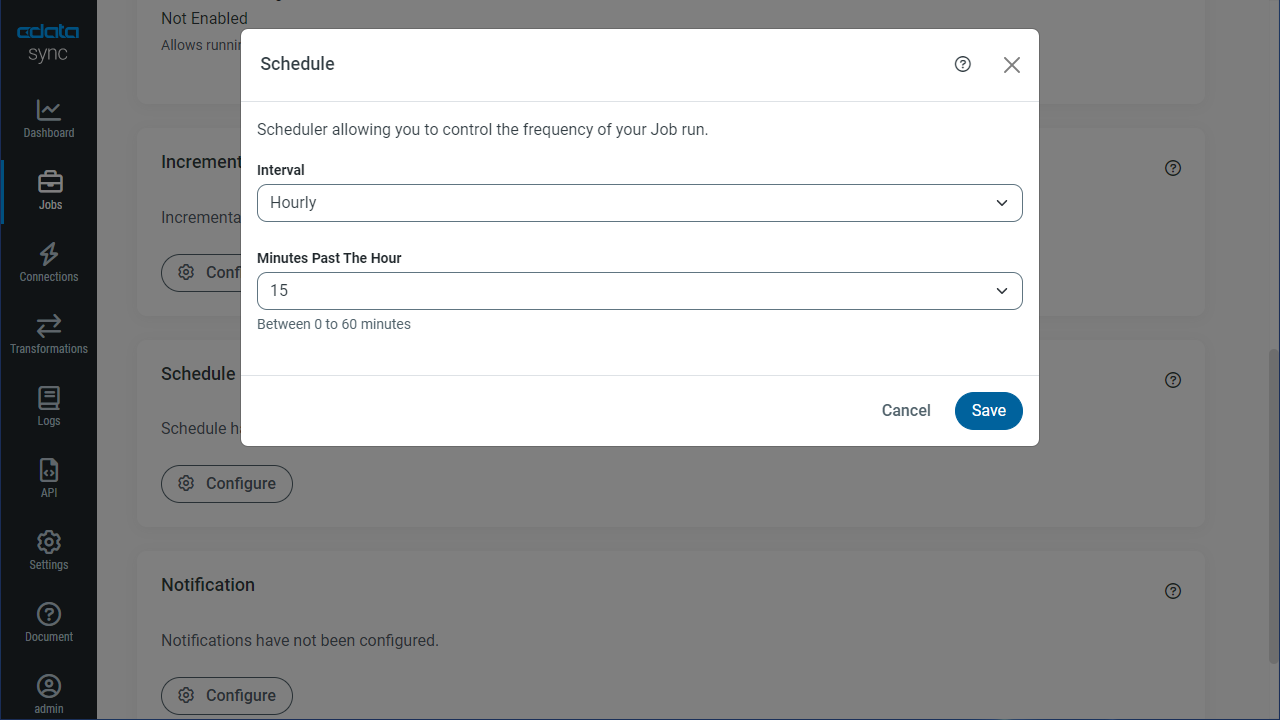
Once you have configured the replication job, click Save Changes. You can configure any number of jobs to manage the replication of the data from your different Redshift accounts.


